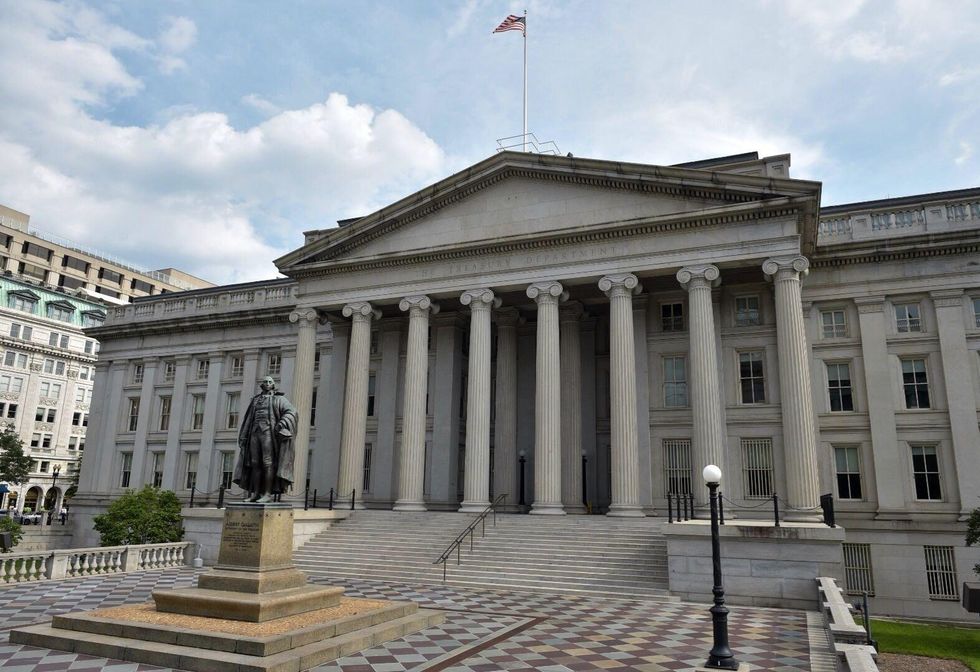
Treasury Secretary Steven Mnuchin and Office of Management and Budget Director Mick Mulvaney announced Monday that the federal budget deficit for fiscal year 2018 had reached $779 billion. (MANDEL NGAN/AFP/Getty Images)

The U.S. federal budget deficit has reached $779 billion for the fiscal year that ended on Sept. 30. This is 17 percent higher than last year, and larger than any year since 2012.
Treasury Secretary Steven Mnuchin and Office of Management and Budget Director Mick Mulvaney reported the deficit numbers for fiscal year 2018 in a news release on Monday.
The 2018 budget deficit was lower than the 34 percent that the Trump administration had been predicted in August. At the time, the administration had projected that the budget deficit would hit $890 billion.
This is the highest the deficit has been in six years. In 2009, the federal budget deficit hit $1.4 trillion, and remained over $1 trillion until 2012. The deficit grew during this period due to bailouts and other counter-recession measures. In 2013, the deficit dropped back down to $680 billion.
The Treasury department predicted that the deficit would reach $833 billion in 2019, but that it would continue to climb after that.
Budget deficits occur when the federal government spends more than it earns. While the Trump administration has cut taxes, federal spending has also increased. Tax revenue dropped from 17.2 percent of the U.S. GDP to 16.5 percent, while overall federal government spending rose by 3 percent. In March, Trump signed a $1.3 trillion spending bill into law.
During a strong economy, the government typically collects more taxes, resulting in a lower budget deficit. However, despite the strong economy, federal revenue only rose by $14 billion.
According to the Congressional Budget Office, deficits should continue to "grow substantially over the next several years, stabilize for a few years, and then grow again over the rest of the 30-year period." The CBO said that this deficit increase "would arise because spending would grow steadily under current law, and revenues would not keep pace with that spending growth.
Mulvaney put the blame for this deficit increase on Congress. He said that while a good economy would increase government revenue, "this fiscal picture is a blunt warning to Congress of the dire consequences of irresponsible and unnecessary spending.”